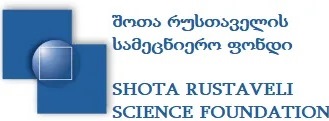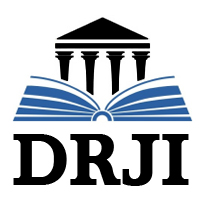The Religious Toleration Policy of the Mongols and its Diplomatic Significance for Relations with the Holy See in the Thirteenth Century
DOI:
https://doi.org/10.55804/Tsu-ti-1/EvaniseliKeywords:
Mongols, Tolerant, Religious Policy, VaticanAbstract
The appearance of the Mongols on the international arena was met with mixed reactions. The Catholic world was no exception. In the West, the fact that the Mongols put an end to the Muslim, Khwarazm Shahs state was positive towards the new people, and they thought about creating a joint anti-Muslim coalition. Nevertheless, of course, there were serious doubts about the identity and intentions of the Mongols. In this article, we will try to find out what is the phenomenon of "Pax Mongolica" and its causes are. What is the role of religious tolerance policy for Mongols, in relations with the Catholic world? In addition, the purpose of the article is to explain the mission of Georgia in regulational process of the Union between Vatican and the Mongol Empire. XIII century is time of major changes in the international politics. We believe that its fundamental study, especially in the context of such a special issue for the modern society, as a religious tolerance is, will be useful not only for Georgian, but also for non-Georgian historiography. For the purposes of the article, the research used mainly the historical-system method. In addition, historical-comparative and critical methods of analyzing sources will be used. Using the hermeneutical method, we studied the reliability of the information provided in the source, the mentality of the authors of the source and the purpose of its creation. The scientific novelty of the article can be considered not only a new interpretation of the reason for religious tolerance of the Mongols, but also the definition and assessment of the role of Georgia in relations between the Tatars and the Vatican. The study concludes that the religious tolerance of the Mongols was dictated not only by religious, but also by political, trade and economic motives. Their tolerant policy confused the Catholic world: the West hoped to eventually practice the Catholic religion in the Ilkhan and the Golden Horde. At the same time, the Vatican and Hulaguians had a common enemy - the Sultanate of Egypt. Accordingly, these factors contributed to the establishment of friendly relations between them. As for the second Mongol state, the Ulus of Jochi, the peaceful coexistence between them and the Catholic world was mainly due to economic factors. Georgia- a vassal of the Ilkhanate, which, despite its split, maintained good relations with the Vatican, automatically became a mediator between the two allies. Thus, the religious policy of the Mongols further simplified relations with the West and the conquered people. "Pax Mongolica" contributed not only to the long existence of the conquered people in the Empire, but also to the deepening of trade and economic relations between the West and the East.
References
Aigle, D., (2005) “The Letters of Eljigidei, Hülegü, and Abaqa: Mongol Overtures or Christian Ventriloquism?”, Inner Asia, pp. 143-162.
Atwood, Ch., P., “Validation by Holiness or Sovereignty: Religious Toleration as Political Theology in the. Mongol World Empire of the Thirteenth Century”, The International History Review, pp. 237-256
Bird, J., (2013) “Crusade and Christendom: Annotated Documents in Translation from Innocent III to the Fall of Acre, 1187-1291”, Philadelphia: University of Pennsylvania Press.
Carpine, Giovanni da Pian del, “The Story of the Mongols Whom We Call the Tartars” (Trans. by G. Kkikodze), Tbilisi.
Ciocîltan, V., (2012) “The Mongols and the Black Sea Trade in the Thirteenth and Fourteenth Centuries” (Trans. by. Samuel Willcocks), Leiden-Boston: Brill.
Evaniseli, G., (2019), “The Eastern Policy of the Papacy and Georgia - Ecumenical and Diplomatic Relations of the Holy See (from the Thirteenth Century to the Thirties of the Fourteenth Century)”, Tbilisi, https://openscience.ge/bitstream/1/653/1/samagistro%20evaniseli.pdf
Evaniseli, G., (2021) “On the Nationality of Abaqa Khan's Envoys to Europe”, Gori State Teaching University, Faculty of Humanities, Collection of the Proceeding of the Centre for Historical Studies and Archaeology, №20, pp. 19-28
Gogoladze, A., Tsitlanadze, T., Karchava, T., Silagadze, N., (2015) “Georgia and the Latin Levant according to the Accounts of Jacques de Vitry”, Tbilisi, Publishing House “Meridiani”
Grekov, B. D., Yakubovsky, A. Y., “The Golden Horde and Its Downfall”, Moscow and Leningrad, USSR Academy of Sciences Press, https://webcache.googleusercontent.com/search?q=cache%3Aom5WXUpiIvAJ%3Ahttps%3A%2F%2Fstudfile.net%2Fpreview%2F5553395%2Fpage%3A13%2F%20&cd=13&hl=en&ct=clnk&gl=ge&fbclid
Hautala, R. V., (2013) “Latin Sources on the Religious Situation in the Western Mongol Uluses in the Late 13th-Early 14th Centuries”, Golden Horde Civilization, pp. 273-281.
Hautala R. V., (2014) “Letters of the Franciscan Missionaries from the Golden Horde: Latin Sources on the Religious Policy of Öz Beg Khan (1312/13-1341)”, Rossica Antiqua, pp. 63-103.
Jackson, P., (2014) “The Mongols and the West, 1221 1410”, New York, Routledge.
Juwaynī, ʿAṭā Malek, (1974), “Foreign Sources on Georgia (Juwaynī’s Accounts on Georgia)”, (Trans. by R. Kiknadze), Tbilisi, Publishing House “Metsniereba”
Kaukhchishvili, S., (1959) “The Life of Kartli”, Vol. 2., Tbilisi, https://wikisource.org/wiki/%E1%83%9F%E1%83%90%E1%83%9B%E1%83%97%E1%83%90%E1%83%90%E1%83%A6%E1%83%9B%E1%83%AC%E1%83%94%E1%83%A0%E1%83%94%E1%83%9A%E1%83%98_-_%22%E1%83%90%E1%83%A1%E1%83%AC%E1%83%9A%E1%83%9D%E1%83%95%E1%83%90%E1%83%9C%E1%83%98_%E1%83%9B%E1%83%90%E1%83%A2%E1%83%98%E1%83%90%E1%83%9C%E1%83%94%22_(1959)#%E1%83%9B%E1%83%94%E1%83%A1%E1%83%90%E1%83%9B%E1%83%94%E1%83%9D%E1%83%AA%E1%83%93%E1%83%90%E1%83%9D%E1%83%A0%E1%83%94_%E1%83%9B%E1%83%94%E1%83%A4%E1%83%94%E1%83%9C%E1%83%98_%E1%83%93%E1%83%90%E1%83%95%E1%83%98%E1%83%97,_%E1%83%AB%E1%83%94_%E1%83%9B%E1%83%94%E1%83%A4%E1%83%98%E1%83%A1_%E1%83%9A%E1%83%90%E1%83%A8%E1%83%90-%E1%83%92%E1%83%98%E1%83%9D%E1%83%A0%E1%83%92%E1%83%98%E1%83%A1%E1%83%90,_%E1%83%93%E1%83%90_%E1%83%93%E1%83%90%E1%83%95 “A Hundred Year Chronicle” (1959) by the Chronicler “The Sixty-Second Kings: David, Son of Lasha-Giorgi, and David, Son of Queen Rusudan, from the Bagrationi Dynasty”.
Lane, G., (2003) “Early Mongol Rule in Thirteenth-Century Iran: A Persian Renaissance”, London and New York: RoutledgeCurzon.
Mamistvalishvili, E., (2016) “The Foreign Affairs and Diplomacy of Georgia IV: Georgia and the Crusaders”. Tbilisi, Publishig House “Saari”.
Mann, H. K., (1931) “The Lives of the Popes in the Early Middle Ages”. Vol. 17, London.
Rossabi. M., (2012) “The Mongols: A Very Short Introduction”, New York : Oxford University Press.
Ruysbroeck, Willem van, (1942) “The Journey of William of Rubruck to the Eastern Parts of the World” (Trans. by G. Kkikodze), Tbilisi.
Tabagoua, I., (1984) Georgia in Archives and Libraries of Europe (XIII-XVI centuries). Tbilisi, Metsniereba.
Tanase, Th., (2018) “A Christian Khan of the Golden Horde? “Coktoganus” and the Geopolitics of the Golden Horde at the Time of its Islamisation”, Revue des mondes musulmans et de la Méditerranée, 143, 49-64.










